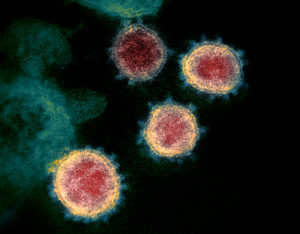 Sperm quality and sperm count is diminished for months after an unvaccinated man is infected with COVID-19. Yikes!
Sperm quality and sperm count is diminished for months after an unvaccinated man is infected with COVID-19. Yikes!
A study conducted by a team of Belgian researchers analyzed samples of sperm from 120 unvaccinated men (average age 35 years) in the first two months after they had recovered from COVID-19 infection. They found that in the first month after infection 37% of the men had reduced sperm counts and 60% had reduced sperm motility (how sperm moves). Over time there was improvement, but even after 2 months sperm count was lower in 6% and reduced sperm motility in 28%.
The only good news was that there was no evidence of the virus in the semen - which means that the semen isn't infectious after recovery. By the way, severity of the infection (with symptoms, including fever) did not correlate with the effects on sperm.
The researchers felt that by 3 months the sperm should be back to normal, but they are also doing a follow-up study to confirm this.
Bottom line: The first 2 months after COVID-19 infection is not the time to try to conceive a baby (due to suboptimal sperm). The study results are also a good argument for getting vaccinated!
From Medscape: Sperm Count, Motility May Be Low for Months After COVID-19
Sperm quality is impaired for months in some men after recovery from COVID-19, researchers have found.
They studied semen samples obtained from 120 Belgian men with an average age of 35 years, at an average of 52 days after COVID-19 symptoms had resolved.
The semen itself was not infectious, the researchers found.
But among 35 men who provided samples within a month after infection, reductions in sperm motility were evident in 60% and sperm counts were reduced in 37%, according to a report in Fertility and Sterility.
Among 51 men tested between one and two months after recovery, 37% had reduced sperm motility and 29% had low sperm counts. And among 34 men who provided semen samples at least two months after recovery, sperm motility was impaired in 28% and sperm counts were low in 6%.
"Couples with a desire for pregnancy should be warned that sperm quality after COVID-19 infection can be suboptimal," the researchers concluded. "The estimated recovery time is 3 months, but further follow-up studies are under way to confirm this and to determine if permanent damage occurred in a minority of men."
